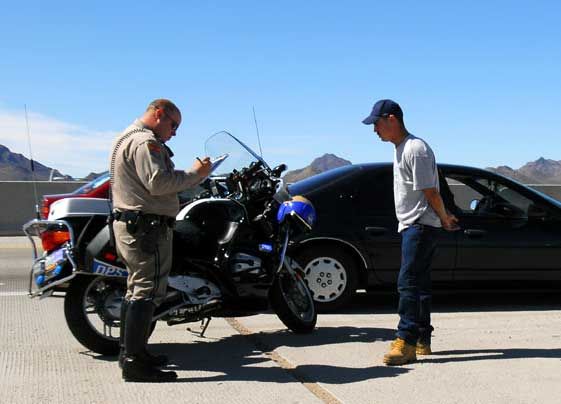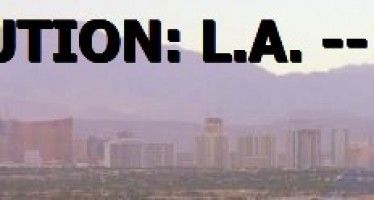Cities create own traffic fiefdoms

APRIL 6, 2010
By ANTHONY PIGNATARO
According to aides to Sen. Jenny Oropeza, D-Long Beach, a Long Beach police officer recently gave a Torrance resident a choice: get a speeding ticket for violating the state’s Vehicle Code, which will go on the driver’s record and likely result in higher insurance premiums, or agree to pay a city of Long Beach fine that, while twice as much as the state speeding ticket, won’t result in any points or insurance problems. The resident, the aides say, opted to pay the state fine and risk the driving record, but the whole incident left a bad taste in Oropeza’s mouth. So much so that in February she sponsored SB949, which will outlaw what seems to be a growing trend in cities and counties enforcing their own local traffic ordinances instead of the state’s Vehicle Code.
“I was shocked when a Torrance-area constituent complained to me that some municipalities were circumventing existing state law by citing motorists under newly written, local municipal codes,” Oropeza said in a Feb. 4 statement. “This trend endangers motorists by inhibiting the state’s ability to keep dangerous drivers off the road and putting at risk millions of dollars that could be used for highway improvements.”
Money, it seems, is at the heart of the matter. In her press release, Oropeza referenced the potential loss of federal highway monies that are calculated at least partially from the number of state moving violations – which would go down if cities start citing their own violations instead of Vehicle Code-related infractions – but her bill also makes this point explicit: “This bill would expressly prohibit a local authority from enacting or enforcing an ordinance that assesses a penalty for a violation of matters covered by the Vehicle Code that is different than the penalty expressly provided for in that code unless expressly authorized.”
A Long Beach police spokesperson wouldn’t comment on that city’s traffic enforcement policies, other than to say that while Long Beach did have municipal traffic laws she didn’t know if cops there were enforcing them over the state Vehicle Code. A California Highway Patrol spokesperson similarly had no comment on the practice or the proposed bill, though she did want to make clear that the CHP has no financial dog in the fight.
“We just enforce the laws,” media relations director Fran Clader said. “Traffic laws are there to keep people safe on the roadway. The CHP does not receive any revenue for any citation it issues.”
Cities and counties are a different matter. One aide to Oropeza called the writing of municipal traffic ordinances a “growing practice,” and that certainly seems true in these times of lean budgets statewide and few dollars heading to the cities from Sacramento. Ironically, most of the municipalities that enforce their own traffic laws are offering far better deals than that offered to Oropeza’s constituent.
In Roseville, for instance, officers have the choice of fining motorists who fail to stop at a stop sign or commit some other sign violations $100 under the city ordinance or $125-$200 under state law, said police spokesman Lt. Michael Doane. Those fined under the city law will not get any points on their record or face higher insurance rates.
“We started doing this in the first part of 2009,” Doane said. “We limit ourselves to basically sign violations; we chose not to do speeding. And we do this at the officer’s discretion. Most residents [cited under the city law] pay the fine fairly quickly. But if it’s an especially hazardous violation, and the officer feels it’s important that it goes on the driver’s record, then the officer can go by the state law.”
Doane said the city has had local traffic laws on the books since 1983. But last year the department’s traffic unit suggested they start enforcing those laws, and the chief signed off on it. Doane said the city does make more revenue enforcing its laws than the state Vehicle Code.
“The City of Roseville gets a small slice of fines from state courts,” Doane said. “We’re enforcing these laws, but a very small sliver comes back to the city. The city gets 15 percent of a Vehicle Code fine, which for a typical $207 fine comes to $32.50. This way, 100 percent of the [$100 local fine] comes back to the general fund.”
Of course, Doane added that the city doesn’t consider the local traffic law “a source of income” and last year, only wrote 628 local traffic tickets out of 17,000 total moving violations. “Our motivation is to create safe roadways in the city,” Doane said.
While Alameda County sheriff’s deputies write far more tickets based on their local traffic ordinances than Roseville cops – 600-700 out of 1,500 total traffic tickets every month, Undersheriff Richard Lucia said, if anything, the local ordinances are costing the county revenue.
“For red light violations, the county gets $175 for a vehicle code violation, but only $100 for the county ordinance,” he said. “In my opinion, the state is not out any money.”
Lucia said Alameda County has had local traffic laws on its books for the last 50 to 75 years. “There’s nothing new about this at all,” he said. But lately, he said, traffic violations have gotten “out of control.”
“Deputy sheriffs are reluctant to enforce traffic laws,” Lucia said. “That’s CHP work. But there’s not enough highway patrol. The county gets about the same take [from its own traffic tickets] as under the Vehicle Code, but my deputies don’t feel so bad about issuing them because they don’t go on the driver’s record and their for first-time offenders only. Our citizens thank our deputies for these tickets. ‘Thank you very much for being humane,’ they tell us.”
In any case, on May 4 Oropeza’s bill comes before the Senate Transportation and Housing Committee. As for what will happen if Oropeza’s bill passes, Lucia said that was simple.
“The deputies will just stop writing tickets,” he said. “Deputies will not issue Vehicle Code violations to first time violators.”
Related Articles
Ivanpah morphs into gas-solar hybrid
This is Part 2 of a two-part series on the Ivanpah solar plant. Part 1 is here. As its name implies, the Ivanpah
Will MWD try — again — to sabotage client seeking new water supplies?
I’ve been a journalist in Socal since 1990, and I’ve never seen a story about government behavior as strange as
Despite strong profits, Farmer Bros. gives up on CA
A highly profitable coffee distribution and production company with deep roots in Los Angeles County and a national clientele is




